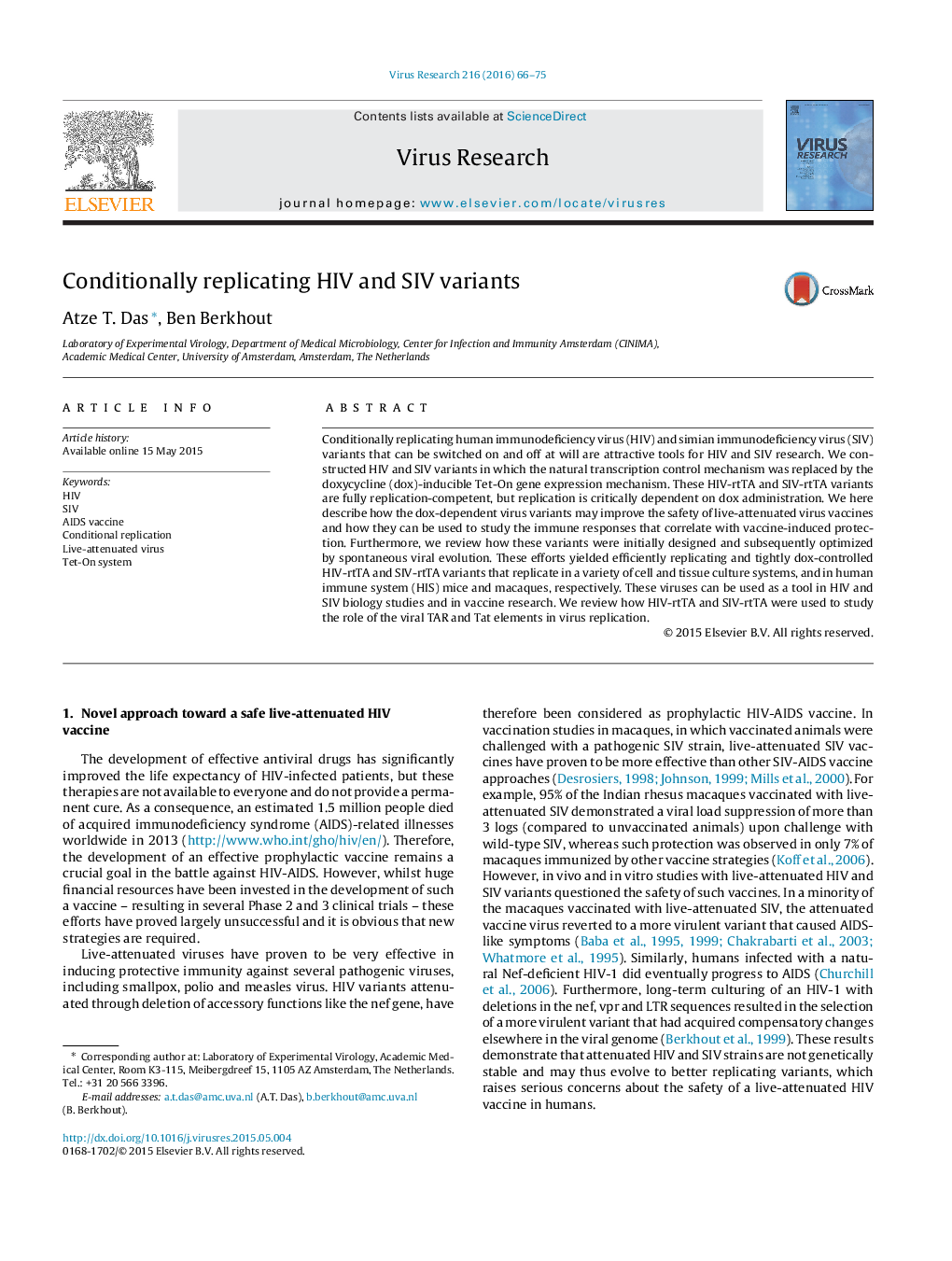| کد مقاله | کد نشریه | سال انتشار | مقاله انگلیسی | نسخه تمام متن |
|---|---|---|---|---|
| 3427941 | 1594341 | 2016 | 10 صفحه PDF | دانلود رایگان |

• We developed conditionally replicating HIV-1 and SIV variants.
• HIV-rtTA and SIV-rtTA replicate exclusively in the presence of doxycycline.
• These designer viruses were optimized through spontaneous virus evolution.
• The optimized viruses replicate in cell and tissue cultures and in animal models.
• These viruses are valuable tools in HIV and SIV biology studies and vaccine research.
Conditionally replicating human immunodeficiency virus (HIV) and simian immunodeficiency virus (SIV) variants that can be switched on and off at will are attractive tools for HIV and SIV research. We constructed HIV and SIV variants in which the natural transcription control mechanism was replaced by the doxycycline (dox)-inducible Tet-On gene expression mechanism. These HIV-rtTA and SIV-rtTA variants are fully replication-competent, but replication is critically dependent on dox administration. We here describe how the dox-dependent virus variants may improve the safety of live-attenuated virus vaccines and how they can be used to study the immune responses that correlate with vaccine-induced protection. Furthermore, we review how these variants were initially designed and subsequently optimized by spontaneous viral evolution. These efforts yielded efficiently replicating and tightly dox-controlled HIV-rtTA and SIV-rtTA variants that replicate in a variety of cell and tissue culture systems, and in human immune system (HIS) mice and macaques, respectively. These viruses can be used as a tool in HIV and SIV biology studies and in vaccine research. We review how HIV-rtTA and SIV-rtTA were used to study the role of the viral TAR and Tat elements in virus replication.
Journal: Virus Research - Volume 216, 2 May 2016, Pages 66–75